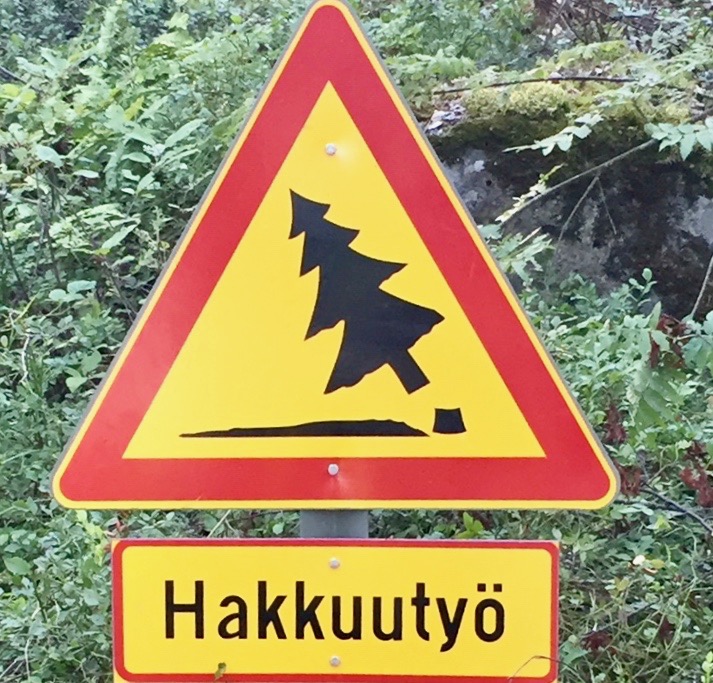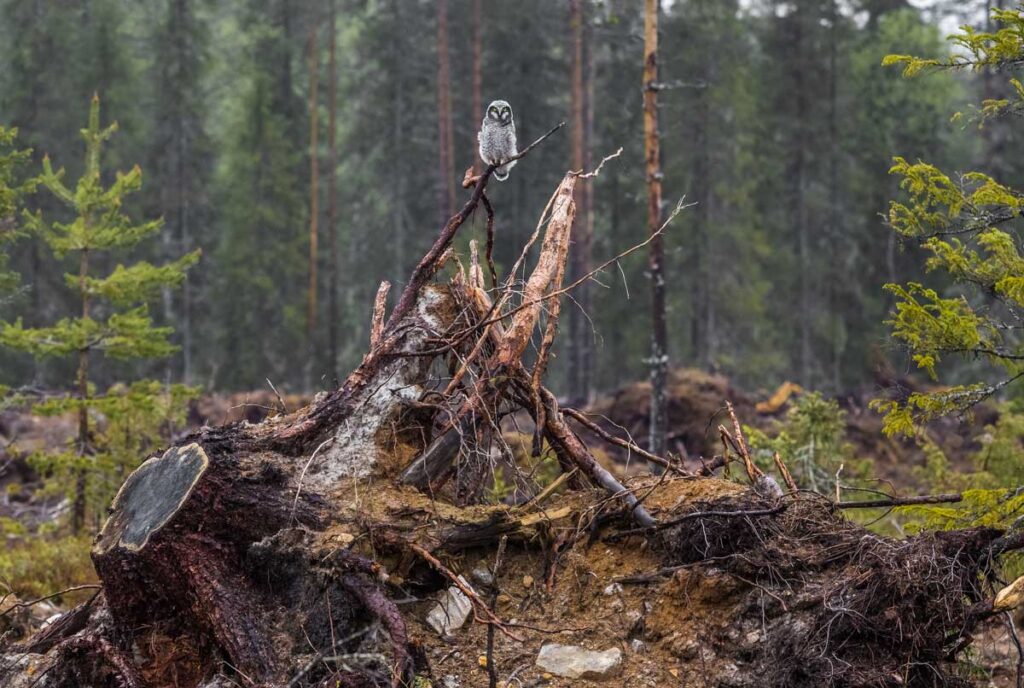Avoin kirje Euroopan komissiolle kestävän rahoituksen taksonomiasta
–
Eurooppalaiset ympäristöjärjestöt kirjoittivat Komissiolle kestävän rahoituksen taksonomian metsä- ja bioenergiakirjauksista.

Open Letter to the Commission
Asking for Removal of Forestry and Bioenergy from the Current Climate Taxonomy Delegated Act
Brussels, 9 April 2021
Dear President von der Leyen,
Vice-President Timmermans and Dombrovskis,
Commissioner McGuinness,
We are dismayed by the latest version of the forestry and bioenergy criteria in the climate mitigation taxonomy draft Delegated Act.
Rules on forestry were already relatively weak in the initial November 2020 Delegated Act draft, as we assessed at that time. However, according to recent media reports, criteria are being manipulated to the point that we now face the prospect of the taxonomy becoming counterproductive for forestry. Our early assessment finds that logging could be deemed to be providing a ‘significant contribution’ to climate mitigation when in reality it does not even ensure ‘no significant harm’ to biodiversity – let alone provide any actual climate benefits. We believe that this is in breach of the Taxonomy Regulation.
We appreciate that, at this late stage, there is no longer time to re-discuss all forestry criteria. The same is true for bioenergy criteria, which are equally problematic. As a result, the only way forward that we can see for these land-based sectors is to remove both forestry and bioenergy from the climate taxonomy Delegated Act, as the Commission rightly did for agriculture, and allow more time for discussion in order to find criteria that are scientifically credible.
Below are some of the most striking findings of our analysis of the forestry criteria:
• For holdings under 25 ha, there is no requirement to perform any type of climate benefit analysis to claim that forestry substantially contributes to climate mitigation under the Taxonomy. This figure of 25 ha must be compared to the EU average forest holding of 13 ha. In fact, around 2/3 of EU forest owners have holdings of less than 3 hectares. This is a loophole of epic proportions. • The relevant requirement to prove additionality has been removed, as has any requirement for controls, and the initial audit can be carried out by any private entity. In Finland for example, 95% of forests are already certified, essentially with the PEFC scheme. Considering that this could mean that the Taxonomy criteria classify 95% of Finnish forest management as substantially contributing to climate mitigation and doing ‘no significant harm’ to biodiversity, the Taxonomy would be sanctioning a scientific disgrace.1 • The climate benefit analysis only requires the demonstration of climate benefits over a period of 30 years after the beginning of the activity – i.e. after 2050, since the adoption of the Delegated Act is planned in 2021. The previous draft required benefits to be demonstrated over 20 years, not 30. 30 years is inconsistent with the 2050 deadline of the EU net-zero and the Paris Agreement goals. If any climate benefit can do, even a 1% improvement over 30 years, then this is not a substantial contribution. • Sustainability of logging is basically defined as adherence to national legislation, or to the very generic criteria of the Forest Europe guidelines. Almost all current logging would comply. This is opposed to climate science: there is robust scientific evidence that current logging has massively degraded biodiversity2 and is rapidly reducing Europe’s carbon sink. • Perversely, a ‘Do No Significant Harm’ criterion on circular economy prevents any changes that would significantly reduce wood production, hence logging. This would mean that if logging volumes were previously unsustainable, there is no allowance for reducing it to a sustainable level – including for “conservation” forestry.These are not simply loopholes that would allow a few unsustainable projects to go through. If the leaked text is not radically changed, it would transform the Taxonomy from a claimed anti-greenwashing gold standard into an actual greenwashing tool.
Bioenergy criteria, which were already fully inadequate in the November draft, have been worsened further. The classification of bioenergy as a ‘transitional’ activity has been removed. The criteria state that almost any activity that is aligned with the flawed Renewable Energy Directive is counted as sustainable, including the use of dedicated cropland for energy. This contradicts all recent authoritative scientific research and the Commission’s own impact assessment on woody biomass.
The purpose of the EU Taxonomy is to correctly label green finance: this means following the best scientific evidence on an activity’s environmental impact.
Capitulating to the aggressive forestry and bioenergy lobbies would not do any good to European forests nor climate, but it would undermine the Taxonomy and more broadly the European Green Deal. This must be avoided.
We call on you to urgently consider our recommendations and we ask for an urgent meeting with you or your cabinet to discuss the draft text. We are available to exchange with you on this issue as soon as possible.
Yours sincerely,
BirdLife Europe, Ariel Brunner, Senior Head of Policy
WWF European Policy Office, Sebastien Godinot, Senior economist
NABU, Dr. Steffi Ober, Senior Policy Officer for Economy and Sustainable Research
Fern, Hannah Mowat, campaigns coordinator
Environmental Paper Network, Finance Working Group, Karen Vermeer, Coordinator
Global Forest Coalition, Simone Lovera, executive director
Transport & Environment, Luca Bonaccorsi, Director of Sustainable Finance
E3G – Third Generation Environmentalism, Tsvetelina Kuzmanova, Policy Advisor
Bellona Europa, Keith Whiriskey, Deputy Director
ClientEarth, Brian Rohan, Head of Climate & Forests Programme
Milieudefensie – Friends of the Earth Netherlands, Jonas Hulsens, Senior Policy Officer
Nova Scotia Healthy Forest Coalition, Bob Bancroft, Biologist
Stand.earth, Tyson Miller, Forest Programs Director
Leefmilieu, Maarten Visschers, Board Member
Climate Strategy, Peter Sweatman, CEO
Life of the Land, Henry Curtis, Executive Director
Natural Resources Defense Council, Debbie Hammel
Rainforest Relief, Tim Keating, Director
Society for Responsible Design, Greg Campbell, Convenor
Polish Zero Waste Association, Aleksandra Wieczorek, Chairwoman of the Board
Bomenstichting Achterhoek, Marjan Houpt, Founder and Board Member
Wild Europe, Toby Aykroyd, Coordinator
No Electricity from Forest, NSW, Australia, Frank Dennis, spokesperson
Partnership for Policy Integrity, Mary Booth, Director
Profundo, Jan Willem van Gelder, Director
Rivers without Boundaries International Coalition, Eugene Simonov, Coordinator
BankTrack, Johan Frijns, Director
Biofuelwatch, Almuth Ernsting, Co-director
Stichting de Woudreus (Drenthe), Mieke Vodegel, Founder and Board Member
Landelijk Netwerk Bossen- en Bomenbescherming, Joke Volkers, Founder
Estonian Fund for Nature, Siim Kuresoo, member of executive committee
Friends of the Siberian Forests, Russia
Pracownia na Rzecz Wszystkich Istot, Radosław Slusarczyk, Director of the Board
Mighty Earth, Nico Muzi, Europe Director
EcoCare Ghana, Obed Owusu-Addai, Co-founder and Managing Campaigner
Protect the Forest, Sweden, Lina Burnelius, Project leader & International coordinator
ZERO – Association for the Sustainability of the Earth System, Francisco Ferreira, President of the Board
Association 2Celsius, Mihai Stoica, Executive Director
Economy, Land and Climate Insight, Edward Robinson, Director
Pivot Point, A Nonprofit Corporation, Peter Riggs, Director
Ecology Action Centre, Raymond Plourde, Senior Wilderness Coordinator
ForestCom, Dmytro Karabchuk, Executive Director
Suomen luonnonsuojeluliitto, Tapani Veistola, Head of Nature Conservation Unit
ROBIN WOOD, Jana Ballenthien, Forest Campaigner
Forum Ökologie & Papier, Evelyn Schönheit, Environmental Scientist
ARA, Wolfgang Kuhlmann, Director
WOLF Forest Protection Movement, Juraj Lukáč, Chief
EuroNatur Foundation, Gabriel Schwaderer, Executive Director
SOMO, Myriam Vander Stichele, Senior Researcher
Lithuanian Consumers Alliance, Kęstutis Kupšys, Vice-President
Reclaim Finance, Paul Schreiber, Campaigner
Groen Pensioen, Marjolein van Dillen, Data Analyst and Researcher
Both Ends, Cindy Coltmans, Senior Campaign Manager
Save Estonia`s Forests, Liina Steinberg, member of board
Corporate Europe Observatory, Martin Pigeon, researcher & campaigner
Forests, Climate & Biomass Energy Working Group, Environmental Paper Network, Peg Putt, Coordinator
The Irish Peatland Conservation Council, Tristram Whyte Conservation, Policy & Fundraising Officer
The Hedge Laying Association of Ireland, Shane Downer, General Manager
FEASTA, The Foundation for the Economics of Sustainability, Caroline Whyte, Director
The Organic Centre, Ireland, Dr Jan Melia, General Manager
CELT, The Centre for Environmental Living and Training, Ireland, Andrew St Ledger, Biodiversity Officer
Green Economy Foundation, Ireland, Cillian Lohan, Chief Executive Officer
Coastwatch Ireland, Karin Dubsky, Director
Irish Seed Savers, Jennifer Mc Connell, General Manager
Sonairte, Kim Reilly, Research Development Officer, Ireland
Environmental Pillar Ireland, Karen Ciesielski, Co-ordinator
ECOS, Mathilde Crepy, Senior Programme Manager
Agent Green, Gabriel Paun, Founder
European Environmental Bureau, Blaine Camilleri, Policy Officer on Fiscal Reform and Circular
Economy
Society for Earth (TNZ, Poland), Piotr Rymarowicz, Chairman
Canopy, Tamara Stark, Campaigns Director
An Taisce, The National Trust for Ireland, Phil Kearney, Chair
Zero Waste Alliance Ireland, Sean Cronin, Director
Lisätietoja

Toiminnanjohtaja Tapani Veistola
- +358 400 615 530
- tapani.veistola(a)sll.fi


